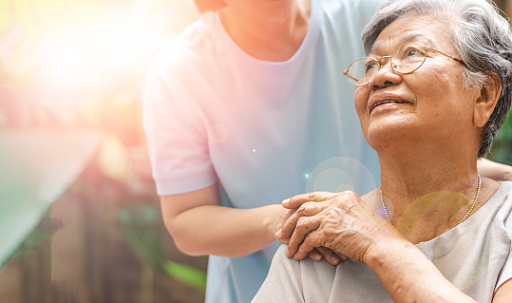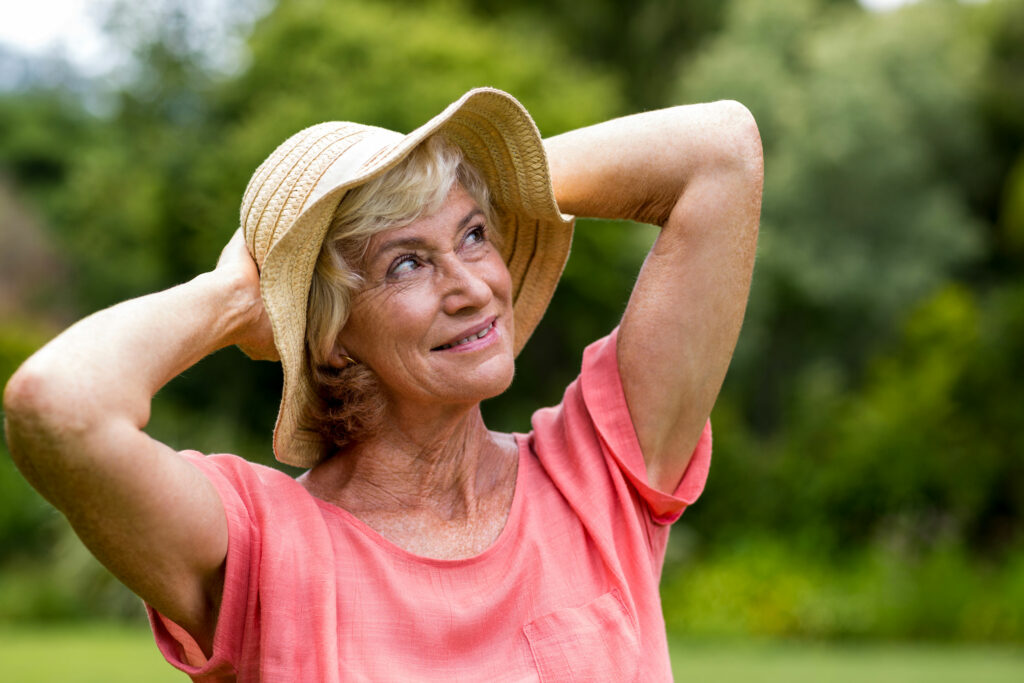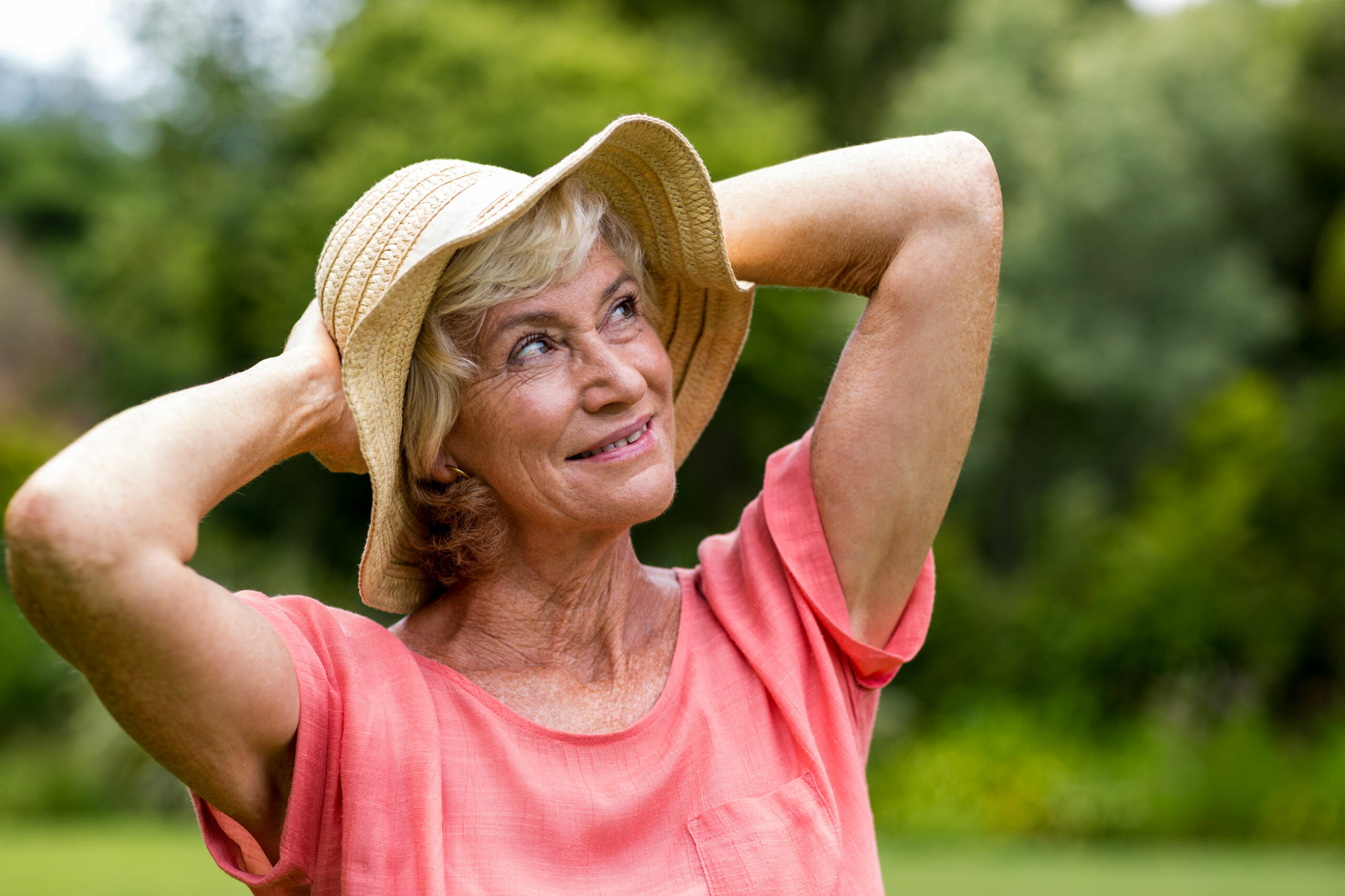What is Terminal Lucidity?
Some people experience an end-of-life phenomenon called terminal lucidity where they suddenly experience cognitive improvement before they pass away. There is a lot of mystery as to what causes this abrupt improvement in memory, consciousness or mental clarity in the final days, and it can often leave loved ones puzzled or with a false sense of hope.
In this article, we explain what you can expect if your loved one experiences terminal lucidity.
Who Experiences Terminal Lucidity?
Also referred to as paradoxical lucidity or end-of-life rallying, terminal lucidity can sometimes occur in people who suffer from severe neurological or psychiatric disorders such as Alzheimer’s disease, dementia or schizophrenia. People with brain tumors or those who have suffered a stroke can also experience this medical mystery.
As of right now, researchers aren’t sure why this phenomenon occurs. For this reason, it is impossible to determine who will experience it and who won't. 
When Does Terminal Lucidity Happen?
Terminal lucidity typically occurs hours or days before someone passes. The exact amount of time it lasts or when it begins varies from person to person. For those who witness their loved one regaining their mental clarity, it is important to recognize it is not a sign of miraculous healing. However, it is an opportunity to share an incredibly special moment with your loved one before the final goodbye.
What Happens During Terminal Lucidity?
During terminal lucidity, the physical symptoms of the individual’s condition may decrease in severity. A person who was completely non-verbal or who rarely communicated may begin talking again. The individual may appear more cheerful than normal and regain interest in eating or drinking. Someone with severe memory problems may start remembering moments from their past and suddenly be able to identify people they stopped recognizing. Your loved one may even start to see or talk to deceased people or pets they’ve known during their lives.
How Does Terminal Lucidity Affect Families?
Some families interpret terminal lucidity as a sign of healing, making their loved one’s passing shortly after the onset of the lucidity even more difficult. This is why Liberty Hospice advocates for educating families about what they can expect during hospice. We want you to be able to cherish every moment with your loved one during this precious time.
Liberty Hospice emphasizes comfort measures and counseling to deliver physical, emotional and spiritual support for everyone involved. Our bereavement services continue for the family after their loved one passes so they do not have to go through the journey of grief alone.
If you would like to know more about our hospice services across North Carolina and Virginia, give us a call at 800-999-9883 or use our online free consultation request form.
Sun Safety for Seniors: How to Prevent Skin Cancer
According to the Skin Cancer Foundation, 1 in 5 adults will develop some form of skin cancer by the age of 70. The risk increases as you age because you accumulate more sun exposure and sun damage over time. Older adults tend to have more fragile skin and some medications may also cause the skin to be more sensitive to sunlight.
Repeated ultraviolet radiation exposure causes skin cell mutations, which can lead to skin cancer. The main types of skin cancer are basal cell carcinoma (BCC), squamous cell carcinoma (SCC), melanoma and Merkel cell carcinoma (MCC).
There are some easy precautions you can take while enjoying time outdoors to reduce the chances of skin cancer.
 Stay in the Shade
Stay in the Shade
Staying in the shade is one of the best ways to prevent UV exposure. UV light is strongest between 10 a.m. and 4 p.m., so staying out of direct sunlight during those hours is ideal.
Wear Sunscreen
Any time you are going to be out in the sun, be sure to wear sunscreen with an SPF of at least 30. Make sure the product you are using has broad spectrum protection against both UVA and UVB rays. Be sure to check the expiration date before applying the sunscreen. Sunscreen is usually good for 2 to 3 years.
You should apply sunscreen to all areas of the body where the skin will be exposed to the sun. Don’t forget to protect your lips by using lip balm with sunscreen. Sunscreen should be reapplied every two hours or more frequently if you are sweating or swimming, even if a sunscreen says it is ‘water resistant.’
Cover Your Eyes and Head
The face is a common location to develop skin cancer. It’s also possible to develop cancer in the eyes. When enjoying the sunshine, wear sunglasses and a wide-brimmed hat that protects your eyes, forehead, nose, scalp and ears.
Perform Monthly Skin Examinations
Early detection is key, so you should examine your skin once a month. If you see something new, changing or unusual, it is recommended to get it checked by a dermatologist right away. The look of skin cancer varies from person to person, but here is a gallery of some skin cancer examples. Finding and treating skin cancer early can save your life.
There is nothing quite like enjoying a warm, sunny day, so we hope these tips can help you or a loved one do so safely.
New Year Resolutions for Caregivers
 As a caregiver, you play a unique role in the life of someone else. You probably spend a great deal of your time focused on this individual, and sometimes, you may feel like you can’t balance everything. In this article, we discuss some possible resolutions for the New Year to help you on your journey as a caregiver.
As a caregiver, you play a unique role in the life of someone else. You probably spend a great deal of your time focused on this individual, and sometimes, you may feel like you can’t balance everything. In this article, we discuss some possible resolutions for the New Year to help you on your journey as a caregiver.
Make Time for You
While it may seem counterproductive to make time for yourself when you have a loved one to care for, it is actually much needed. You need to have enough physical and mental energy to handle the job, and that means making time for your own needs on a regular basis, whether it is an hour a week or 15 minutes a day. You need that time to recharge.
Stop Feeling Guilty
Some caregivers feel guilty if they cannot be present for their loved one 24/7. That guilt can make you feel like you are letting your loved one down, even if you have been giving it your all. Let go of the guilt and understand you’re only human. You might not always fulfill your role as caregiver to a T, but you’re trying. You’re doing the best you can. More than likely, your loved one sees that and isn’t going to condemn you for not being there every second of the day. Plus, to be the best caregiver possible, you need to take care of yourself first.
Don’t Be So Critical of Yourself
You might make mistakes along the way, but you are doing more good than you realize. When you look at yourself less critically, you can see just how much you are accomplishing for your loved one. Rather than dwelling on the negative, focus on the positive. Remind yourself that you make a difference.
Get Organized
You have a lot going on in your life when you consider everything it takes to care for your loved one along with a household, job, and all of your other duties. Have a calendar where you input all important dates for your home, work and loved one. Keeping your house orderly and organized can also help you manage your daily routine.
Get Help
They say it takes a village to raise a child and the same concept applies to being a caregiver. It takes a great deal of time, effort and work to be a caregiver, especially if you’re doing it alone. This year, you may want to make it not just a resolution, but a priority to look into home health care or hospice services for your loved one.
Instead of doing it alone, Liberty HomeCare and Hospice Services provides an interdisciplinary care team dedicated to meeting the skilled needs of your loved one. This will take some of the stress off of you and give you time to care for your own needs. We provide home health, palliative care and hospice services wherever your loved one calls home.
If you’re ready to have an extra hand this year for your caregiving responsibilities, contact Liberty HomeCare and Hospice Services today. We’re available for a free consultation by calling 800-999-9883 or using our online form.



